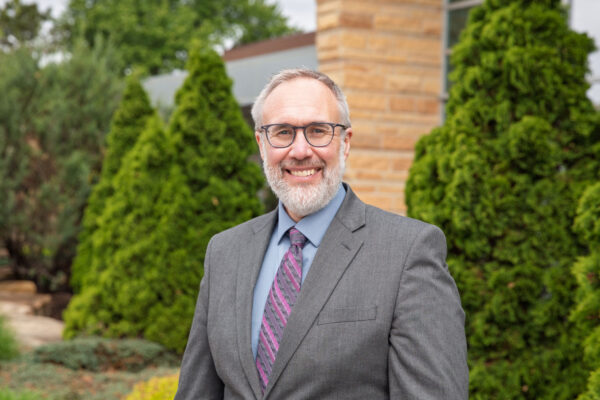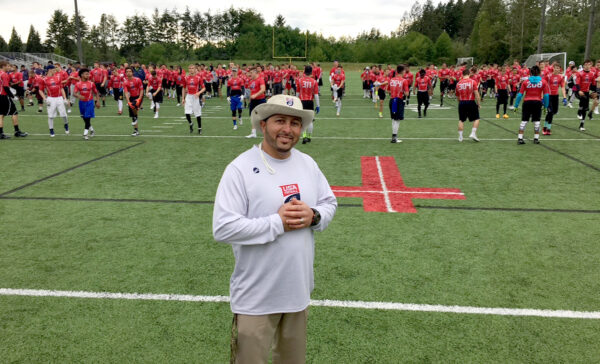The University of Washington’s School of Nursing offers degree programs in Seattle, Bothell (at the School of Nursing & Health Studies) and Tacoma (at the School of Nursing & Healthcare Leadership) that train nurses to provide compassionate patient care and to become leaders in improving health care through innovative and evidence-based solutions.
Many of the school’s graduates also choose to pursue their nursing careers at UW Medicine’s hospitals and clinics.
As part of our celebration of Nurses Week, we share the stories of several UW Medicine nurses who continue to draw on their School of Nursing education to improve patient outcomes, promote health equity, mentor new nurses and find fulfillment in their chosen profession at UW Medicine.
Allyson Weymier, RN, Certified Medical-Surgical RN
Nurse Manager at 6MB Harborview Medical Center
Bachelor of Science in Nursing, University of Washington Bothell, 2019; Master of Nursing, School of Nursing & Health Studies (candidate), University of Washington Bothell, 2025
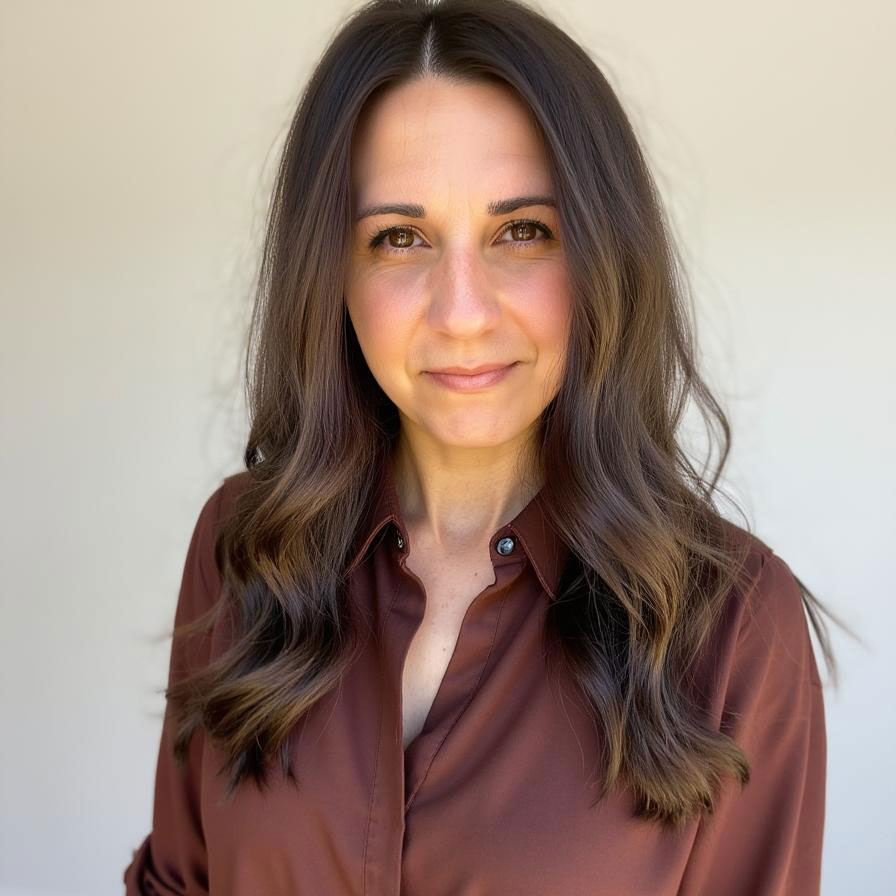
“I became a nurse because I wanted to be there for people when it matters most. There is something incredibly meaningful about being able to offer comfort, knowledge and care during times of uncertainty. Nursing offered a way to turn empathy into action and make a real difference in people’s lives.
“What stood out about the UW School of Nursing program was the way it challenged me to think differently about systems, leadership and the broader impact of nursing. It also gave me the opportunity to connect with nurses from across different settings, which helped me grow outside the lens of my own organization and reflect on nursing from new perspectives.
“As a nurse manager, I try to show up every day in a way that supports my team and helps them do their best work. I advocate for growth, build systems that recognize people’s efforts and try to make change feel less overwhelming. To me, leadership means listening, creating psychological safety, and making sure people feel safe to speak up, take chances and be themselves.”
Kathy Mertens, DNP, MN, MPH, RN
Associate Chief Nurse for Ambulatory Care and Population Health at Harborview Medical Center
Master of Nursing, School of Nursing, University of Washington in Seattle, 1992
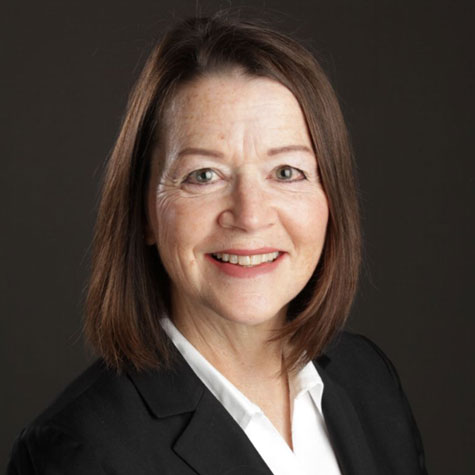
“From an early age, I was drawn to science and inspired to pursue a career that combined purpose with impact. Nursing appealed to me because of its emphasis on meaningful, therapeutic patient relationships — connections central to direct care and nurses’ long-standing public trust. Over time, my perspective evolved to include nursing’s critical role in shaping health systems and advancing population health. I’m deeply grateful to the UW School of Nursing, Harborview and UW Medicine for helping me develop this broader perspective and supporting my continued journey as a nurse leader.
“A long-standing commitment to health equity drew me to the UW School of Nursing, where I earned a master’s in community health care systems and a concurrent MPH in 1992. My time there deepened my focus on at-risk populations and expanded my understanding of health behavior change, data-driven evaluation and multidisciplinary collaboration. A transformative moment was receiving a Dean’s Club scholarship to attend a national policy conference in Washington, D.C. There, I met with congressional staff on Capitol Hill. It was an empowering experience to bring nursing voice directly to leaders and policy conversations — an experience that continues to shape my leadership today.
“In a 1993 article, I quoted Maya Angelou’s words: ‘The horizon leans forward, offering you space to place new steps of change.’ That line still guides me, especially during Nurses Week, as I reflect on how nurses lead change in health care. As a nurse leader and past president of the American Academy of Ambulatory Care Nursing, I’ve embraced chances to bring the nursing voice to discussions about the future of health care locally and nationally, such as presenting to the Harborview Board on cancer screening and speaking at the AAACN Future of Nursing 2020–2030 Town Hall to inform a transformative report on advancing health equity. When nurses have a seat at the table, we drive lasting, meaningful change for our patients, communities and the future of health care.”
Carri Gest, MN, RN, Critical Care Registered Nurse – Neonatal
RN2 at UW Medical Center – Northwest
Bachelor of Science in Nursing, University of Washington in Seattle, 1993; Master of Nursing, School of Nursing & Healthcare Leadership, University of Washington Tacoma, 2020
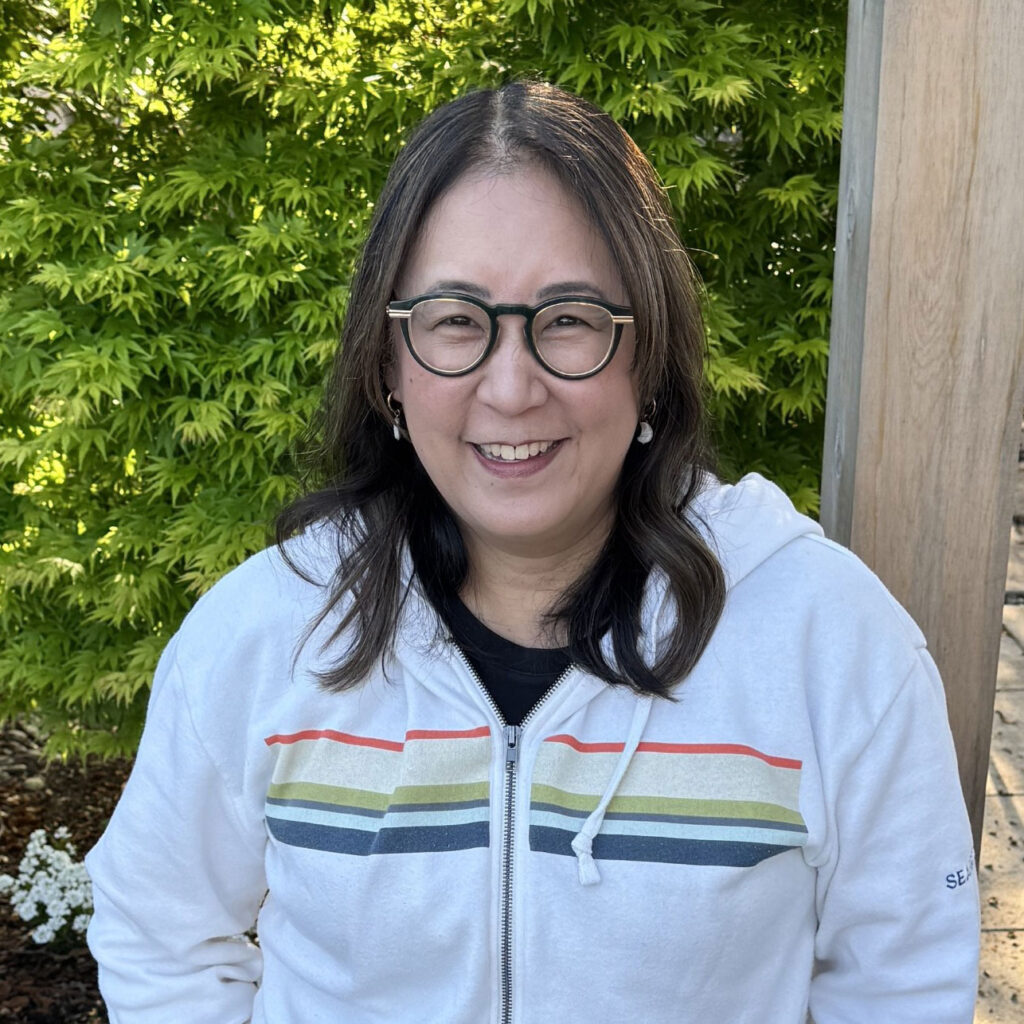
“I am so grateful I found nursing. Nursing is a career with endless possibilities. Nursing has given me the flexibility to work with people of all ages in a variety of settings and with flexible schedules that fit my life. It’s also rewarding to have new opportunities to grow and specialize all the time.
“My expertise is in the Neonatal Intensive Care Unit and neonatal care. I earned my BSN at UW Seattle, and while working as an RN3, I completed my master’s degree at UW Tacoma. This opened the doors for continued leadership as a manager in the NICU, where I focused on operationalizing quality improvement and safety initiatives to improve patient outcomes.
“The master’s program at UW Tacoma deepened my understanding of research, evidence-based practice and the importance of quality and safety in health care. With mentoring from a professor, my scholarly project was published after graduation. I have also given presentations at the Seattle Nursing Research Conference on Central Line-Associated Bloodstream Infections and at a national neonatal conference on the Extremely Preterm Program at UW Medical Center – Montlake.
“Currently, I am back in a patient-facing RN2 role at the Childbirth Center at UW Medical Center – Northwest. I find it incredibly rewarding to support families and be part of their birth experience. In my leadership role, I am a board member and president-elect for the Pacific Northwest Association of Neonatal Nurses, and I’m a UW Medicine team captain for March for Babies. Through my work on PNANN, I look forward to supporting continuing education for nurses and advancing neonatal care practices.”
Lori Ashford, BSN, MSN, Certified Diabetes Care and Education Specialist
RN Care Manager at UW Medicine Primary Care and Population Health
Bachelor of Science in Nursing, University of Washington in Seattle, 1996; Master of Nursing, School of Nursing, University of Washington in Seattle, 2001
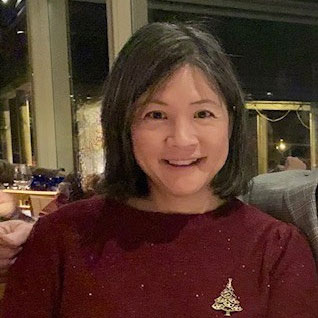
“Growing up in Hawaii, I was raised with values of aloha and importance of community. I didn’t know what I wanted to do when I grew up, but I knew I wanted to work in a field where I was helping others. I also had family members who were in health care as nurses or health administrators that were great role models.
“I received my undergraduate degree at the UW in 1996. At that point in my life, I was so young, I honestly didn’t know what type of nurse I wanted to be. But the great thing about nursing is that there are so many different opportunities. I remember early on, I tried things that looking back on were not the best fit but eventually with maturity and time discovered my calling.
“My undergraduate nursing experience was exciting, rewarding, scary, stressful and exhausting. Through it all, I met some great classmates that provided much support. This was 30 years ago, I can’t remember the actual curriculum, but I do feel the program provided the core knowledge and critical thinking skills to start your nursing career in any situation.
“I am currently working at UW Medicine Primary Care at Northgate as an RN care manager. It’s a residency clinic, and I can use the knowledge that I have accumulated throughout my nursing journey to mentor students and to be part of a team that is improving the health and well-being of patients with chronic disease. I feel so grateful to have a career that aligns with my core values, continually challenges me and provides a sense of fulfillment in my life.”
Tao Zheng, PhD, RN, CCRN-CSC-CMC, CHFN, PCCN
RN2 at Perianesthesia Care Unit, UW Medical Center – Montlake
Clinical Practice Specialist with the American Association of Critical Care Nurses
Master of Nursing, School of Nursing and Healthcare Leadership, University of Washington Tacoma, 2014; Doctor of Philosophy in Nursing Science (candidate), School of Nursing, University of Washington in Seattle, 2025
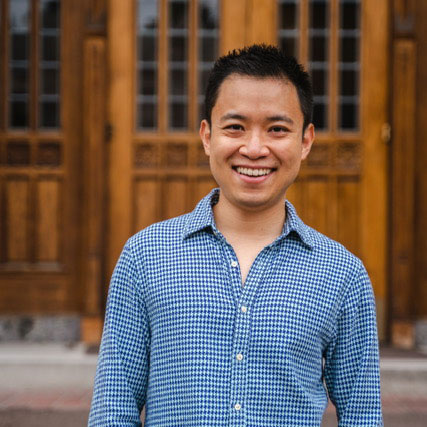
“I became a nurse because I found purpose in caring for others and advocating for those who are vulnerable. As a first-generation immigrant and college student, I began my journey in the U.S. health care system as a certified nursing assistant. That experience opened my eyes to the profound impact nurses can make. I fell in love with the human connection, the trust patients place in us and the opportunity to speak up for those who cannot. Nursing became more than a profession — it became my calling.
“What made the UW School of Nursing and the UW Medical Center truly special was their roles in advancing my nursing career, which I built from the ground up in the United States. I started as a Certified Nursing Assistant, became a Licensed Practical Nurse, then earned my Associate and Bachelor of Science in Nursing degrees. The Master of Nursing program at UW Tacoma fostered my growth as a nurse educator and mentor. The Ph.D. in Nursing Science program at UW Seattle provided rigorous interdisciplinary research training that prepared me to lead clinical research focused on improving outcomes in individuals living with heart failure. Together, these programs and clinical experiences empowered me to grow into a nurse leader, educator and scientist.
“As a clinical nurse educator and Ph.D.-trained nurse scientist, I lead through a commitment to advancing clinical outcomes in individuals with advanced heart failure. My most profound passion lies in optimizing patient recovery and quality of life through research that integrates physiologic measures to reduce symptom burden. My leadership is grounded in interdisciplinary expertise in nursing, neuropsychology, sleep medicine and biostatistics. Through my dissertation, I explored how sleep, cognition, psychological symptoms and quality of life change after cardiac transplant or left ventricular assist device implant. This work is deeply meaningful to me, as it reflects my goal of improving outcomes for a growing, vulnerable population through evidence-based innovation and advocacy.”

